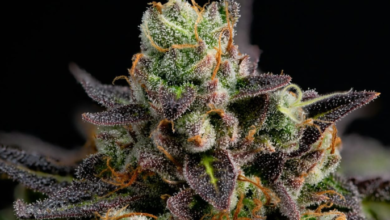
Does Cbd Affect Heart Rate
The relationship between CBD and heart rate is complex. Research indicates that CBD can influence heart rate differently based on dosage and individual factors. Lower doses may decrease heart rate, while higher doses could lead to an increase. This variability raises important questions about the safety and effectiveness of CBD, particularly for those with existing heart conditions. Understanding these nuances is crucial for informed use of CBD in managing cardiovascular health.
Understanding CBD and Its Mechanism of Action
Although research on cannabidiol (CBD) is still evolving, it is widely recognized that CBD interacts with the body's endocannabinoid system (ECS) to exert its effects.
CBD mechanisms include binding to cannabinoid receptors, influencing neurotransmitter release, and modulating inflammatory responses.
These interactions may promote balance within the ECS, potentially leading to various therapeutic benefits, appealing to those seeking natural alternatives for health and wellness.
The Relationship Between CBD and Heart Rate
Research suggests that CBD may have a nuanced impact on heart rate, with effects varying depending on the individual and dosage.
Some studies indicate that lower CBD dosages might reduce heart rate, while higher dosages could lead to an increase.
This variability underscores the importance of personalizing CBD usage to achieve desired outcomes regarding heart rate and overall well-being.
Research Findings on CBD's Effects on Cardiovascular Health
As studies continue to investigate the effects of CBD on cardiovascular health, findings indicate that CBD may offer both protective and potentially adverse effects on the cardiovascular system.
Some research highlights CBD benefits, including reduced inflammation and improved vascular function, while other studies raise concerns regarding cardiovascular safety.
Considerations for Using CBD With Heart Conditions
How might individuals with heart conditions approach the use of CBD?
They should consult healthcare professionals to determine appropriate CBD dosage tailored to their specific needs.
Monitoring heart health is crucial, as individual responses to CBD can vary.
Understanding potential interactions with medications and overall cardiovascular health is essential, enabling informed decisions that prioritize both safety and the desired benefits of CBD.
Conclusion
In conclusion, the effects of CBD on heart rate reveal a complex interplay reminiscent of a double-edged sword; lower doses may offer calm, while higher doses could provoke unrest. This variability emphasizes the necessity for individualized approaches, especially for those with existing heart conditions. As with navigating a labyrinth, consulting healthcare professionals and maintaining vigilance in monitoring heart health remain paramount for safely harnessing CBD's potential benefits in cardiovascular wellness.






